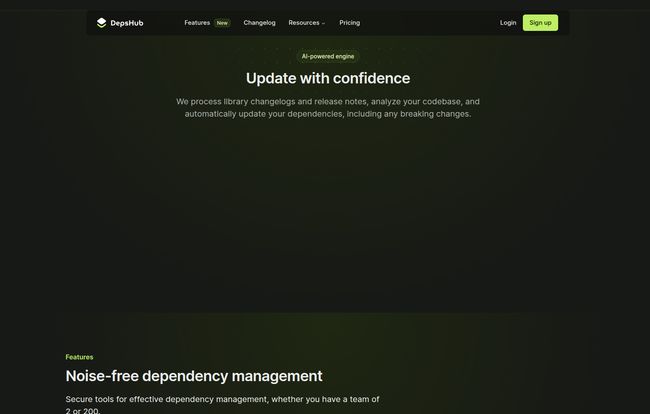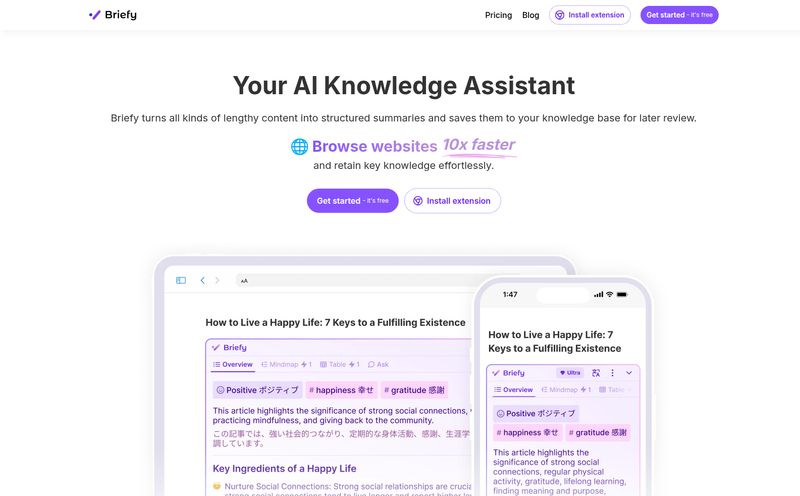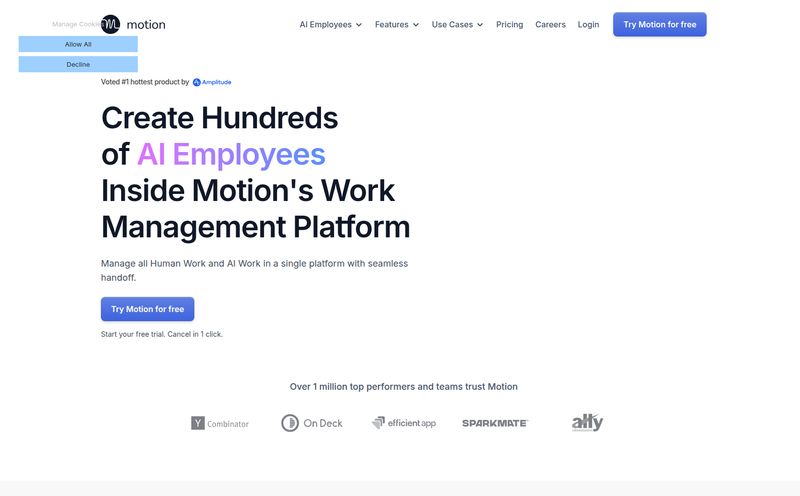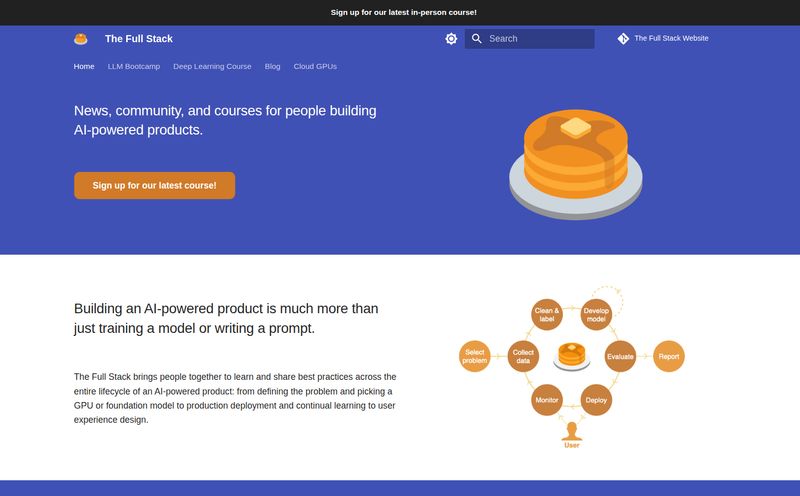Let’s have a little chat. You, me, and the ghost of dependencies past. Remember that one Tuesday when a simple npm install brought the entire project to its knees? Or the cold sweat when the Log4j vulnerability dropped and every C-level exec was suddenly an expert in Java logging libraries? Yeah. Good times.
Dependency management is one of those developer chores that’s both critically important and mind-numbingly tedious. It's like flossing. We all know we should do it consistently, but most of the time we just... don't. Until we get a massive, painful cavity. In our codebase.
For years, we've had tools like Dependabot and Renovate, and they're fine. They do the job. They bump versions. But they can be noisy, and they often lack the, shall we say, finesse to handle breaking changes without manual intervention. So when I heard about DepsHub, an AI-powered tool claiming to bring intelligence to this whole mess, my curiosity was definitely piqued. An AI that reads changelogs and handles updates with confidence? Color me skeptical, but interested.

Visit DepsHub
So, What is DepsHub, Really?
Okay, cutting through the marketing copy. At its core, DepsHub is a dependency management service that connects to your code repositories (GitHub, GitLab, Bitbucket—the usual suspects). But here’s the kicker: it uses an AI engine to automate the process in a way that’s supposed to be smarter than its predecessors.
Think of it less like a dumb script that just checks for a new version number and more like a diligent junior developer. One that actually attempts to read the release notes, understand the implications of an update, and handle breaking changes before creating a pull request. The goal is “noise-free” management. A bold claim in a world where my inbox is already a shrine to Dependabot notifications.
The Features That Genuinely Caught My Eye
A tool is only as good as its features, right? Here’s what stood out to me from their platform.
AI-Powered Updates are the Real Headline
This is the main event. While other tools automatically bump versions, DepsHub claims its AI Copilot goes a step further. It's designed to intelligently handle breaking changes. I’ve spent countless hours manually fixing issues after a major version bump, so the promise of automating even part of that is… well, it’s pretty compelling. It’s the difference between a tool that tells you “Hey, this is new!” and one that says, “Hey, this is new, and I’ve already refactored the three function calls that were going to break.” That’s a huge leap in value.
A Single Dashboard to Rule Them All
If you work on more than one repository, you know the pain. Jumping between projects to check their dependency health is a context-switching nightmare. DepsHub offers a cross-repository overview. Seeing the status of all your projects—which ones are up-to-date, which have vulnerabilities, which are using a sketchy license—all in one place is a massive quality-of-life improvement. Honestly, this feature alone could be worth the price of admission for team leads and engineering managers.
License Compliance & Security Scans That Let You Sleep
Let's be real, nobody enjoys reading the fine print on software licenses. But dropping a GPL-licensed library into your proprietary commercial codebase can create a legal firestorm. DepsHub automates license compliance checks, flagging problematic dependencies before they become a problem for your company’s lawyers. Add in the constant security vulnerability alerts, and it becomes a powerful safety net. It’s proactive, not reactive, which is exactly what you want for security.
How Does DepsHub Compare to the Old Guard?
I know what you're thinking. "I already have Dependabot, it's free, why switch?" It's a fair question. Based on their own comparison, here’s how they see themselves stacking up. I’ve put it in a little table because, well, I’m a nerd like that.
| Feature | DepsHub | Dependabot | Renovate |
|---|---|---|---|
| Automatic Version Bump | ✅ | ✅ | ✅ |
| AI Copilot (Breaking Changes) | ✅ | ❌ | ❌ |
| Automatic License Compliance | ✅ | ❌ | ✅ |
| Smart Changelog | ✅ | ❌ | ❌ |
My take? Dependabot is the free, built-in default. It's good enough for many solo projects. Renovate is the power user's choice—highly configurable but can be a beast to set up. DepsHub seems to be aiming for a sweet spot: smarter than Dependabot, easier than Renovate. The AI is the real differentiator.
Let's Talk Turkey: The Pricing
Okay, so how much does this fancy AI assistant cost? The pricing is actually pretty straightforward, which I appreciate.
- Open Source Plan: This is Free. Forever free for public, open-source repositories. You get the core features like security alerts and basic integrations. This is a no-brainer for anyone maintaining an OS project.
- Professional Plan: This one costs $19 per month, per code contributor. This plan is for private repositories and teams. It includes everything from the free plan, plus unlimited team members, unlimited integrations, and 24/7 chat support.
Is $19 a month per dev worth it? Well, if it saves even one developer just one hour of tedious dependency work a month, it has already paid for itself. Considering the platform boasts saving teams 900 hours a week, the ROI seems pretty clear for any professional team.
The Good, The Bad, and The Realistic
No tool is perfect. Let's be balanced. Based on the documentation and the nature of these tools, here's my breakdown.
The good stuff is obvious. The time savings from automated updates, the peace of mind from security and license checks, and that lovely cross-repo view. It’s all designed to reduce friction and let developers focus on what they're paid to do: build features.
On the flip side, there are a few things to keep in mind. First, there's going to be some initial setup. It's not magic. You have to connect your repos and configure things. Second, the effectiveness of the AI, especially with breaking changes, will heavily depend on the quality of the changelogs and release notes of the dependencies themselves. If a library author writes terrible notes, the AI can't invent information. And finally, like any security scanner, there's always a chance of false positives. You still need a human in the loop to verify the alerts.
Frequently Asked Questions (The Stuff You're Wondering)
What programming languages does DepsHub support?
According to their site, they have a wide range, including JavaScript, Python, Go, Rust, Java, and PHP. They seem to be covering the big players.
How do they define a "code contributor" for the paid plan?
This usually means any developer who pushes code to the monitored repositories. So if you have a team of 5 devs working on a project, you'd be looking at the professional plan for 5 seats.
Is there a self-hosted version available?
Their FAQ on the pricing page doesn't mention one, suggesting it's a cloud-only service for now. This is pretty standard for SaaS tools these days.
Is it really better than Dependabot?
It's not about being strictly 'better', but 'smarter'. If you just need version bumps, Dependabot is fine. If you want a tool that actively tries to reduce your workload by handling complex updates and providing better oversight, then DepsHub appears to have a clear advantage.
How does it integrate with my tools?
It hooks directly into GitHub, GitLab, and Bitbucket. For workflow automation, they also list integrations with Jira, Linear, and even Zapier, which opens up a whole world of possibilities for custom notifications and ticketing.
Final Thoughts: Is DepsHub the Future?
Look, I'm a pragmatist. I'm also a little bit lazy when it comes to chores. I'll adopt any tool that genuinely makes my life easier, and from everything I've seen, DepsHub makes a very strong case.
It's not just another dependency bumper. It’s an intelligent layer on top of a process that has been a source of developer pain for decades. The focus on AI to handle breaking changes, combined with the excellent cross-repo overview and built-in guardrails for security and licensing, feels like a modern solution to a modern problem.
For solo devs working on open source, the free plan is a fantastic offering. For professional teams, the cost seems easily justifiable when measured against developer time and risk reduction. Will I be giving it a spin on my next project? Absolutly. Because if there's a chance to escape even a small corner of dependency hell, I'm going to take it.



